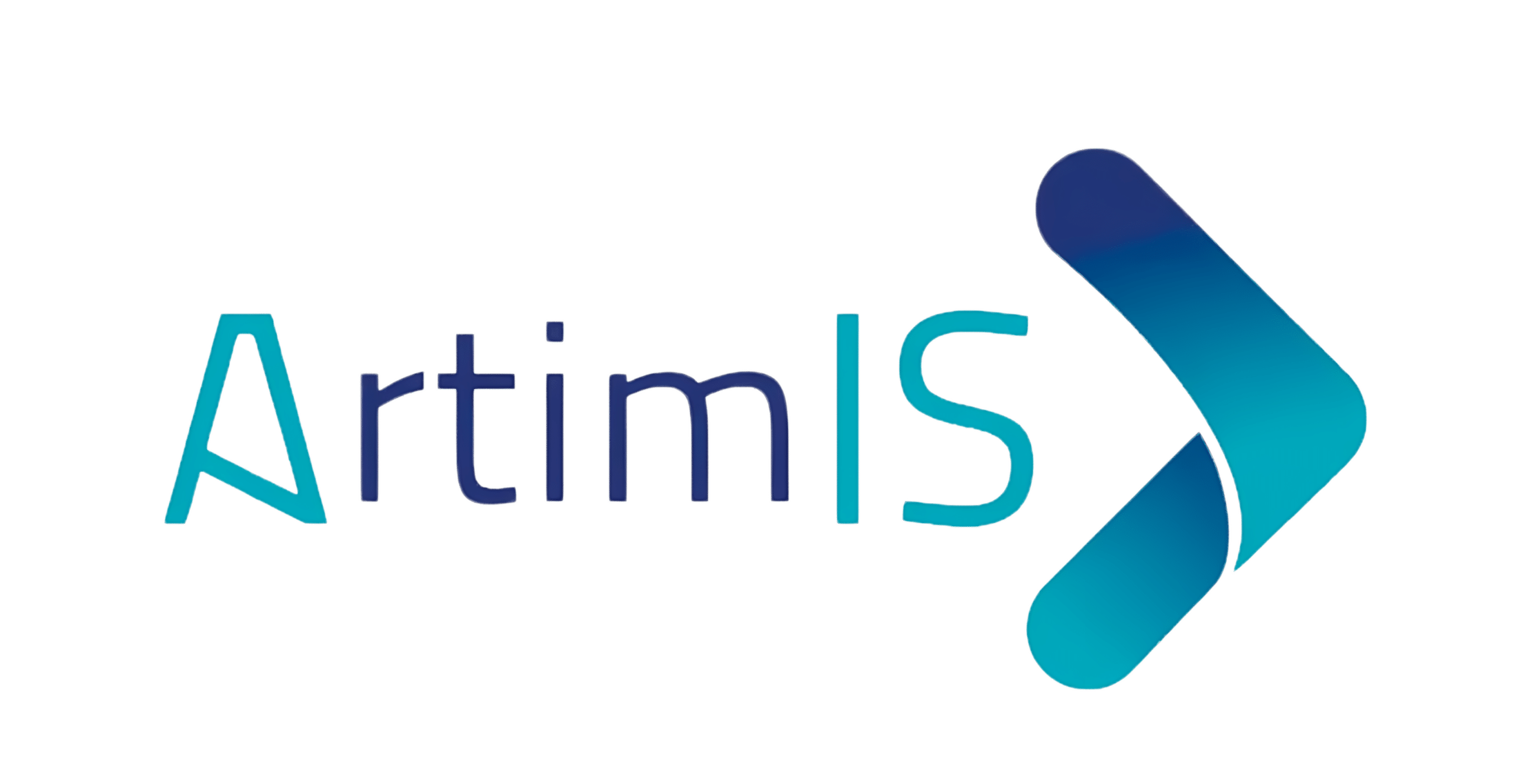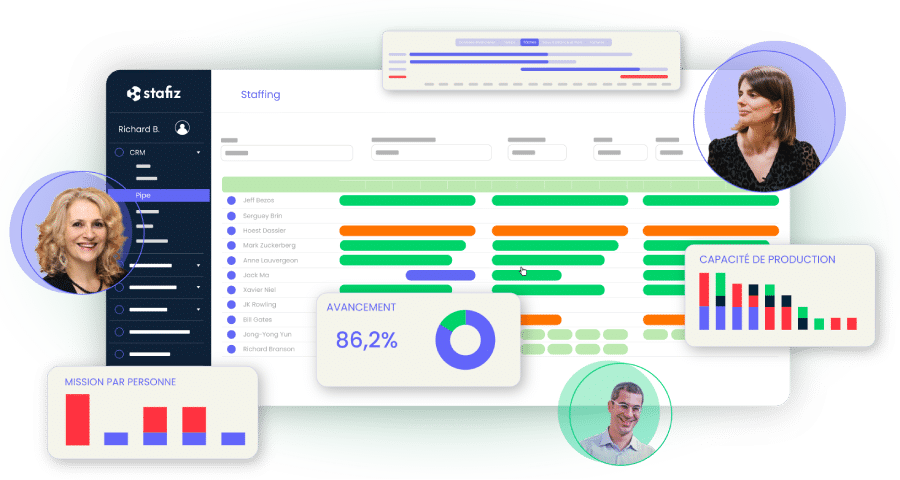5 conseils pour manager son équipe à distance
Non classé
Télétravail : 5 conseils pour mieux manager ses collaborateurs à distance
Faites-vous partie de ceux qui appréhendaient le brusque basculement vers le télétravail et une potentielle baisse de productivité de vos employés il y a un an ? Si oui, l’expérience et le temps vous ont sûrement rassuré. Assurément, l’effet inverse s’est produit. Les travailleurs, tous secteurs confondus, ont redoublé d’effort et ont été plus productifs en 2020. Cependant, des freins à la performance peuvent perturber les télétravailleurs (bugs, manque de feedback, mauvais environnement, surcharge de travail). En tant que responsable d’équipe ou d’entreprise, comment pouvez-vous remédier à ces problèmes et fournir les outils dont vos collaborateurs ont besoin lorsqu’ils travaillent à distance ?
Cet article est principalement basé sur le podcast de Bill Kerr et Joe Fuller, professeurs à Harvard Business School : « Managing the future of work », dans lequel Michael Peachey, vice président de RingCentral est interviewé.
Tip 1 : Comprendre et connaître ses collaborateurs et employés
S’adapter à leurs besoins et valoriser leur travail
La plupart de vos collaborateurs semblent avoir réussi à se familiariser avec les outils numériques telles les plateformes de partage de données ou de visioconférence. Ils expriment malgré tout des besoins particuliers auxquels vous vous devez de répondre en tant que supérieurs. Selon le site Statista : 51% des salariés français en télétravail en 2020 ont ont exprimé avoir des difficultés techniques plus importantes dans la maîtrise des outils informatiques à distance.
Dans le podcast, Michael Peachey explique comment il a aidé les télétravailleurs à rester connectés en les laissant choisir l’outil qui était le mieux adapté à leurs besoins. Sa responsabilité était avant tout de les soutenir dans cette transition en reconnaissant que l’expérience de chacun peut varier.
Travailler à distance nécessite une approche différente et demande plus d’effort. Poser les bonnes questions et trouver des solutions est essentiel. Aussi, valoriser le travail de ses collaborateurs et employés, leur montrer de l’intérêt, peut instaurer chez eux le sentiment d’être réellement intégrés au sein d’une équipe, même à distance.
Tip 2 : Utiliser un outil de staffing pour une meilleure performance
Meilleure gestion des plannings et gain de temps
Répondre aux besoins de vos clients est votre priorité. Cependant vous consacrez la plupart de vos efforts en avant-vente à des tâches sans valeur ajoutée et qui occupent une grande partie de votre temps.
La gestion du staffing et de vos plannings, le reporting et le suivi de votre chiffre d’affaire peuvent être réunis au sein d’un seul et même logiciel, tel Stafiz qui est un ERP et CRM. Avoir la main sur cet outil de staffing vous garantit une amélioration de votre performance et un gain de temps qui vous permettra de vous concentrer sur d’autres tâches plus significatives pour votre entreprise.
L’utilisation d’un outil de gestion des plannings et de staffing contribue à réduire la fatigue et le stress liés aux longues heures de travail devant des écrans et aux nombreux bugs rencontrés.
Tip 3 : Garder son équipe connectée et productive
Former ses collaborateurs aux outils numériques
D’après Neil Kidd, responsable de développement d’équipe, dans cet article sur Welcome to the Jungle : « l’adaptation signifie s’ajuster à de nouveaux outils ». Être en possession d’un outil de staffing ou de plateformes numériques qui facilitent les tâches est une chose, s’assurer que toute l’équipe ne perd pas de temps à comprendre comment s’en servir en est une autre. Que ce soit pour la solution Stafiz ou pour d’autres technologies que vous utilisez, il existe des démos, des formations en lignes, et des ressources que vous pouvez partager avec vos collaborateurs.
Impliquer tout le monde de manière égale
Le secteur du numérique, offre l’avantage d’avoir une carrière « portative » ou « portable », dans le sens où chaque individu peut travailler de n’importe où. Cela dit, tout le monde ne bénéficie pas des mêmes commodités et un télétravailleur peut se trouver désavantagé vis-à-vis de ses collègues quant à son implication dans les missions où tâches à accomplir. De plus, 57% des télétravailleurs ont trouvé les échanges entre collaborateurs plus difficiles en 2020.
Pour souder ses équipes et garder un lien social pendant le confinement, Michael Peachey a invité ses employés à se connecter à une visioconférence non-interrompue chaque jour, comme s’ils étaient tous ensemble au bureau. En tant que dirigeant, créer cette communauté au travail aide à rester connectés et « sain émotionnellement », selon Peachey.
D’après cet article : maintenir des réunions hebdomadaires en visioconférence aide à maintenir la cohésion d’équipe si les temps de paroles sont respectés et si la réunion s’appuie sur un support visuel envoyé en amont. Cela dit, gardons en tête que l’accumulation de réunions réduit la productivité et provoque de la fatigue. Sachons trouver le bon équilibre !
Tip 4 : Trois soft skills à avoir
Intelligence émotionnelle et empathie
Les softs skills sont aujourd’hui indispensables au travail et pour un manager, elles sont non négligeables. Vos employés autant que vos clients ont généralement beaucoup d’attente vis-à-vis de vous. L’empathie est sûrement l’une des qualités les plus recherchées chez un supérieur. Vos collaborateurs travaillent beaucoup et ne laissent pas toujours paraître leurs ressentis et émotions.
Selon Hospitality Insight EHL, l’intelligence émotionnelle laisse la possibilité à l’autre de s’exprimer en toute confiance et de recevoir les conseils et encouragements attendus pour éviter de perdre le goût du travail, voire de tomber dans des problèmes liés à la santé mentale.
Disponibilité
« En tant que responsable, vérifiez fréquemment l’état de votre équipe et soutenez chacun en tant que personne. Ne vous contentez pas de leur poser des questions sur leur liste de tâches, mais demandez-leur comment ils se sentent. Nous savons que cela fonctionne, et nous avons vu des gagnants et des perdants relatifs dans les différents secteurs que nous servons, en fonction de la façon dont une organisation est connectée en interne » Michael Peachey, RingCentral
Pour bien rallier ses troupes il faut être présent et à l’écoute. En nourrissant ce lien social et émotionnel, vos employés seront plus heureux et plus performants. Le tout est de savoir leur faire confiance et de ne pas perturber leurs tâches quotidiennes qui sont généralement entrecoupées par nombre de réunions.
Enthousiasme
Restez enthousiaste ! Montrez à vos collaborateurs que rien n’est impossible et faites preuve d’imagination pour motiver vos équipes. C’est bien connu : si le leader a de l’entrain, le reste va suivre – et par conséquent la croissance de votre entreprise aussi.
Tip 5 : Inspirer ses collaborateurs à s’adapter aux changements
Être un responsable résilient
Dans le podcast « Managing the future of work », est évoqué l’apprentissage par la pratique. Peachey explique qu’il faut commencer à diriger d’une manière nouvelle. La résilience définit en partie ce concept dans le sens où l’adaptation aux conséquences de la crise du Covid-19 est la clé. Acquérir cette force vous permettra de transparaître l’optimisme et la détermination dont vos employés ont besoin pour continuer de travailler de manière productive et à l’unisson avec vos objectifs.
Toujours se fixer des objectifs
Avoir une vision à court et long terme est l’unique façon d’obtenir les résultats que vous souhaitez pour faire croître vos affaires. Se fixer des objectifs, les revoir et les ajuster avec vos collaborateurs ne peut que les aider à se sentir impliqués. Michael Peachey explique qu’il ne s’agit plus de suivre le progrès et d’attribuer des tâches, il s’agit de « faire appel à toute la puissance de l’équipe à distance à pleine capacité, par rapport à un leader qui ne tire que la moitié de la puissance de l’équipe à distance. » Ce sont ces équipes-là qui connaîtront le succès et qui obtiendront les bons projets.
Pousser ses collaborateurs à se réinventer
Enfin, selon l’article de Welcome to the Jungle : « Les qualités de leadership sont constituées d’un mélange de soft skills telles que la prise de décision, l’intégrité, la résolution de problèmes et la capacité à enseigner et à encadrer. Ces compétences sont évidemment importantes pour les patrons et les PDG, mais les employés peuvent également faire preuve de leadership et, ce faisant, devenir plus autonomes, plus productifs et plus influents. »
Il s’agit pour eux d’être proactifs, de prendre de nouvelles responsabilités, de trouver comment se démarquer et faire preuve de créativité et d’innovation. Un dirigeant peut inspirer ses collaborateurs à prendre les rênes et instiller cette confiance et ce niveau d’engagement grâce à ces cinq conseils. C’est ainsi que les managers n’auront plus à se demander comment garder une équipe investie dans les priorités de l’entreprise.
Dans un monde qui ne cesse d’évoluer, nous anticipons une collaboration entre le télétravail et la présence au bureau pour certains employés. Cette expérience risque de représenter des difficultés supérieures. Michael Peachey pense que cet environnement hybride ne sera pas forcément juste pour tous, et ceux qui devront travailler à distance seront vraisemblablement désavantagés dans leur recherche d’évolution de carrière. La question pour les managers concernant la manière de gérer leurs équipes et collaborateurs dans cette situation commence déjà à se poser.
Lisez cet article sur le Responsive Management
D’autres articles pourraient vous intéresser

Optimisation de la Gestion de la Relation Client (GRC) avec Stafiz : le cas d’Artimis
Natalia Duarte...


